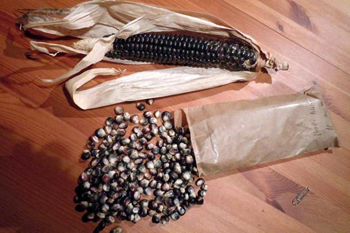Washington D.C., May 5: Working from home has become the new normal ever since the outbreak of coronavirus and in today's time the work duties can be easily dealt with by means of mobile devices at home.
However, this easy use of technology, mobile devices for that matter, has the potential to blur the fine line between work and the other daily life routines.
But, contrary to the belief, a study at the University of Jyvaskyla reveals that the mixing of work and other daily life routines may have more benefits than previously assumed, and points to the importance of boundary-spanning communication.
A smartphone enables phone calls, email, and file transfers from the comfort of home. The study shows that there may be more effective ways to maximise the benefits of smartphone use, without diminishing employees' flexibility and the use of these technologies.
"People often forget to talk about positive effects, such as autonomy and freedom the employees gain when they have the flexibility to schedule their work," said Postdoctoral Researcher Ward van Zoonen from JYU, who with his colleagues examined the use of smartphones for work matters outside working hours.
The study paid special attention to the benefits of talking about domestic matters with the immediate supervisor outside the working hours given to an employee.
"This reduces the conflict between work and other life," van Zoonen said.
"If people in an organisation strive for more dialogue between employees' different life domains, it is possible to create a functional environment where people can talk about different matters."
The research findings show that when employees communicate across boundaries and talk at work about their life in other respects, they can receive new kinds of support and understanding from their immediate supervisor.
"This kind of communication creates a low threshold for contacting one's supervisor, which helps employees build a balance between the different domains of their lives and strengthens their organisational identification," said Professor Anu Sivunen describing the findings.
This means that tight working time restrictions to protect employees might not be beneficial after all, if they hinder reaching the positive results indicated in this research.
For the study, a survey was taken of 367 employees who were asked questions such as -- how much they talk about their work with their family, and how much they talk about their family with their immediate supervisor.
"Both supervisors and their employees answered the surveys, and the study actually focused on their mutual communication," Sivunen said.
"Usually people at workplaces are interested in how communication within the work community is succeeding. It is often forgotten how an immediate supervisor can take an employer's other life into account and thereby help the employee gain work-related benefits."
"Communication with one's immediate supervisor during flexible working hours, also on matters other than work, could ease the daily lives of many employees if they could share the possible challenges of their family life or free time with their supervisor in these settings," Sivunen added.
According to the study, such a practice could make the supervisor aware of the employee's situation as he/she works from home and the related impacts on their work performances.
 In the study, a rat model of metabolic syndrome fed a high-sugar and high-cholesterol diet and given blue maize extract showed significant improvement in systolic blood pressure, high density lipoprotein (HDL) cholesterol, and triglyceride levels compared to those not given the extract.
In the study, a rat model of metabolic syndrome fed a high-sugar and high-cholesterol diet and given blue maize extract showed significant improvement in systolic blood pressure, high density lipoprotein (HDL) cholesterol, and triglyceride levels compared to those not given the extract.




Comments
Add new comment